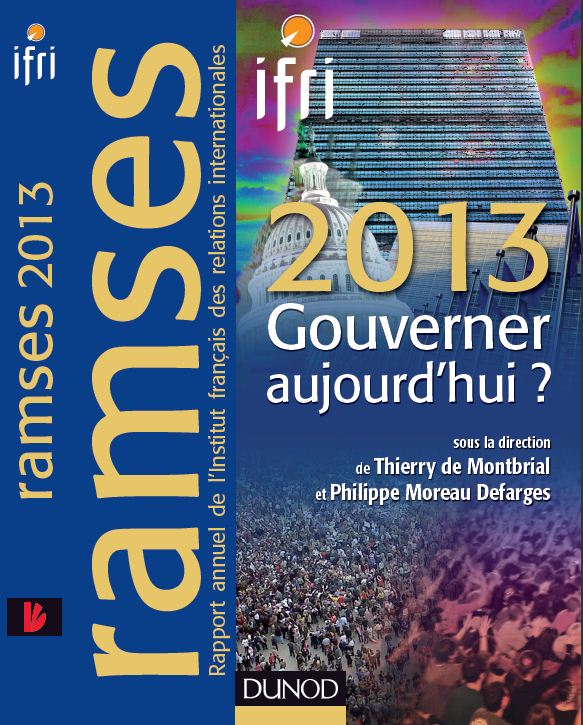Europe
Europe is described here in a geographical sense. It is not limited to the European Union, and includes, for example, the United Kingdom and the Balkans. It remains central to international relations.
Related Subjects

Opening up the G7 to South Korea to Address Contemporary Global Challenges

The G7’s global influence has diminished as powers like China reshape international governance through initiatives such as BRICS and the Shanghai Cooperation Organisation (SCO). With the G7 now representing just 10 per cent of the world’s population and 28 per cent of global GDP, its relevance is increasingly questioned.
How Does the Tea Party Compare with European Far Right Movements?
There is a rich history of far-right political parties in Europe. Long-standing parties such as the French Front National (FN), mostly marginalized since World War II, have enjoyed a resurgence since the 1980’s. Under the very recent leadership of Marine Le Pen, the FN has undergone a rejuvenation of its communication strategy and gained two seats in the National Assembly, the first time that the FN won any seats since the end of the proportional representation system in 1988. There are also many newer far-right parties in Europe, such as the Dutch Party for Freedom (PVV). The PVV, formed in 2006 by Geert Wilders, has become the third most popular party in the Netherlands and was until recently a member of the governing minority coalition.
Capacity Mechanisms : EU or National Issue? Are Capacity Remuneration Mechanisms Helping to Build the Market or Just a Symptom of What Does Not Work ?
In a competitive energy system, generation investment choices are let to investors. It is then the responsibility of the market actors to invest and ensure peak, medium and base load generation, based on market perspectives and trends. If through actors" investments the stability of the system cannot be ensured (because, for example, peak generation is not sufficient to satisfy demand), some measures have to be taken. These can have economic and system integrity impacts on neighboring systems, especially if they are connected. This is precisely what is happening in the European electricity market.
Building Security Institutions: Lessons Learned in Afghanistan
After its rapid military victory over the Taliban, the international community underestimated the resources, time and work that would be required enforce to Security Sector Reform (SSR) in Afghanistan. Even though the Afghan population was supportive of the coalition’s efforts at first, the light footprint approach, fostered by the Europeans, failed to provide with satisfying results as the insurgency made its way through popular frustration.

RAMSES 2013. Gouverner aujourd'hui ?
RAMSES (Le Rapport annuel mondial sur le système économique et les stratégies), is a yearly publication that provides in-depth reviews and prospective analysis on current events, providing readers with indispensable insights and perspectives for understanding contemporary geopolitics on the global scale. Edited by Thierry de Montbrial and Philippe Moreau Defarges, RAMSES relies on the expertise of Ifri’s research team and its network of associates.
The Ongoing Economic Crisis-Series 5. What Precipitated the Economic Bubble in Europe, and How Did It Collapse?
This series of policy papers, published by Ifri and the Canon Institute for Global Studies, provides a Japanese perspective on the causes, the mechanisms and the consequences of the global economic crisis, as well as the measures implemented by the States to cope with it.
The Problems with National Models of Integration: A Franco Dutch Comparison

Missile defense: Certainly American, Potentally European (in French)

Missile defense: Certainly American, Potentally European (in French)
Establishing the Rule of Law: the U.N. Challenge in Kosovo
Created on the 10th July 1999 by Security Council Resolution 1244, UNMIK was responsible for restructuring the institutions of a country devastated by war and establishing democratic governance. The security of people and goods and the existence of a legal system trusted by the population were two crucial prerequisites to the state-building process.
An Overview of Italy's Energy Mix
Italy is currently hit by an unprecedented economic, political and social crisis. This changing and uncertain environment affects more than ever the ability to define an energy strategy, which has never really benefitted from a clear vision and a solid organization. Since the 1987 referendum, which acknowledged the end of the nuclear program, the Italian energy policy has been elaborated through a juxtaposition of decrees and rules. Several laws have been approved either to comply with the European regulation or to correct former policies. These have contributed to the creation of a highly intricate regulation puzzle, only accessible to the most voluntary ones or the better equipped. The “success” of renewables subsidies has compromised the profitability of thermal power stations and increased the energy bills of retail consumers.
Support independent French research
Ifri, a foundation recognized as being of public utility, relies largely on private donors – companies and individuals – to guarantee its sustainability and intellectual independence. Through their funding, donors help maintain the Institute's position among the world's leading think tanks. By benefiting from an internationally recognized network and expertise, donors refine their understanding of geopolitical risk and its consequences on global politics and the economy. In 2025, Ifri supports more than 80 French and foreign companies and organizations.








